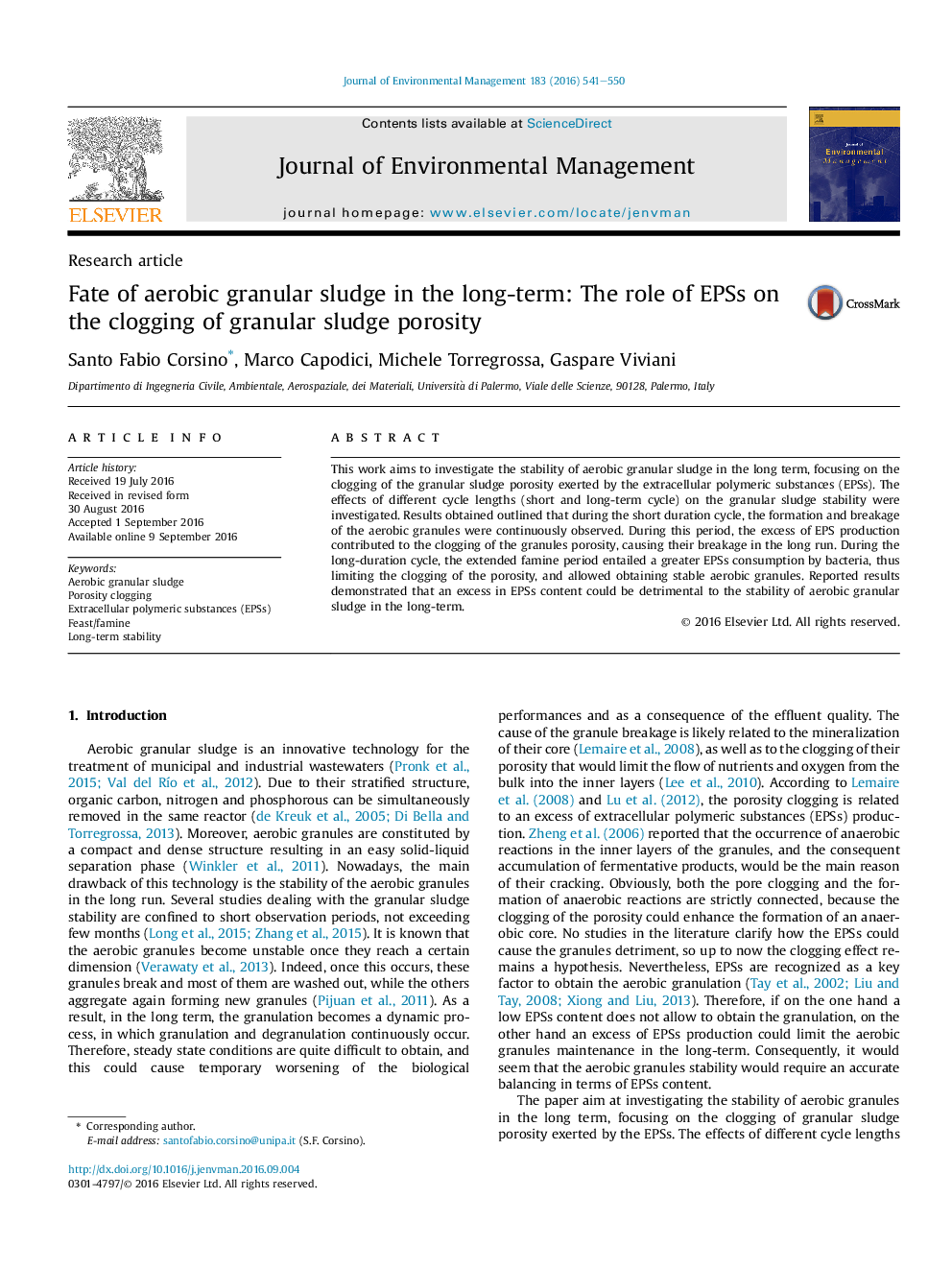| Article ID | Journal | Published Year | Pages | File Type |
|---|---|---|---|---|
| 5117189 | Journal of Environmental Management | 2016 | 10 Pages |
â¢The stability of granular sludge was monitored for over two years.â¢Short duration cycle promoted a higher EPS production.â¢The excess of EPS caused the porosity clogging of the granules.â¢Extended cycle enhanced the granules structure, promoting their long-term stability.â¢The beneficial role of EPS was limited within a certain concentration interval.
This work aims to investigate the stability of aerobic granular sludge in the long term, focusing on the clogging of the granular sludge porosity exerted by the extracellular polymeric substances (EPSs). The effects of different cycle lengths (short and long-term cycle) on the granular sludge stability were investigated. Results obtained outlined that during the short duration cycle, the formation and breakage of the aerobic granules were continuously observed. During this period, the excess of EPS production contributed to the clogging of the granules porosity, causing their breakage in the long run. During the long-duration cycle, the extended famine period entailed a greater EPSs consumption by bacteria, thus limiting the clogging of the porosity, and allowed obtaining stable aerobic granules. Reported results demonstrated that an excess in EPSs content could be detrimental to the stability of aerobic granular sludge in the long-term.
Graphical abstractDownload high-res image (247KB)Download full-size image
